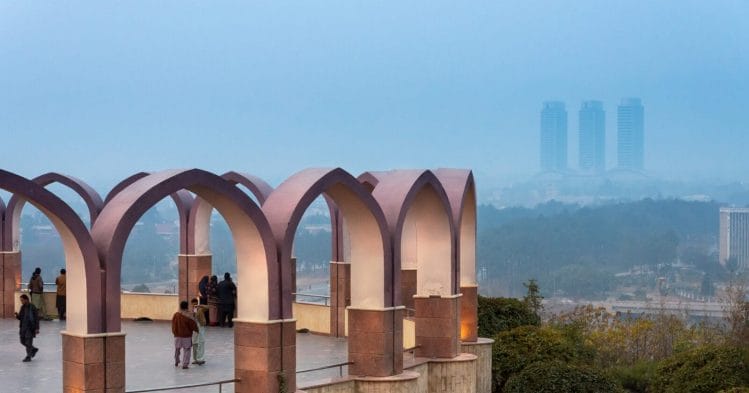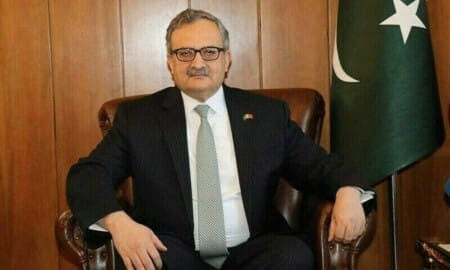Pakistan’s recent economic unraveling is a crisis with profound impacts, affecting millions with the sting of poverty, hyperinflation, and unemployment. The crux of the challenge lies at the crossroads of human rights and economic policymaking, a labyrinth often fraught with difficult decisions.
The Human Rights Watch’s thorough assessment peels back the layers on the effects of austerity, the climate crisis, and societal fractures, presenting a tableau of lived realities and systemic struggles.
In its 740-page ‘World Report 2024,’ released on Friday, HRW reviewed human rights practices in more than 100 countries. The report observed that the International Monetary Fund’s (IMF) insistence on austerity and the removal of subsidies, without adequate compensatory measures, resulted in additional hardship for low-income groups in Pakistan.
Understanding the depths of Pakistan’s economic woes, this article shines a light on the intricate fabric of a nation struggling under the weight of fiscal crises and human rights concerns. As we unpack the details, the value to the reader becomes clear: being forewarned is to be forearmed. This article serves as a toolbox for comprehension, offering the key that unlocks insights into the country’s multifaceted challenges and pivotal global relationships.
Economic Strain: A Surge in Poverty and Inflation
Amidst the backdrop of economic tumult, Pakistan’s populace bears the brunt, staggering under escalating poverty and a relentless inflationary spiral. The removal of subsidies, as mandated by the International Monetary Fund (IMF), has not been counterbalanced by measures to shield the most vulnerable, exacerbating inequities and stoking tensions within communities. This has manifested in a palpable escalation of financial distress among low-income families, translating to hurdles in accessing essential services like health and nutritious food.
The situation beckons a call for action, underscoring the necessity for a nuanced approach to fiscal reforms that considers the human cost. It’s this human cost that stirs unrest, amplifying the pleas from within for a governance that is responsive to the economic realities of its constituents, and not solely fixated on broader macroeconomic stabilization.
Impact of Climate Change on an Agrarian Economy
The longitude and latitude of Pakistan position it as a highly vulnerable target for the wrath of climate change, enduring warming rates that overstep the global average. The increase in heat is not without severe consequences; agricultural yields falter, food security teeters, and the populace faces recurring natural disasters with devastating effect.
Recognizing the need for robust, climate-resilient strategies is a clarion call to both national and international stakeholders. By integrating sustainable practices into the economic framework, Pakistan could navigate the global warming labyrinth with agility and build the foundation for a future that is not only economically vigorous but also environmentally accountable. The HRW report says.
Download your free copy of the 2024 World Report today! https://t.co/MhWUwGO9FA #Rights2024 pic.twitter.com/rL5ROvTw5f
— Human Rights Watch (@hrw) January 18, 2024
Media Muzzling and Civil Liberties at Stake
In the realm of expression and civil liberties, a cloud of intimidation looms over Pakistani media and advocacy groups. The tendrils of constraint curl around journalism and social activism, pressuring entities into a chastening dance of self-censorship under the watchful gaze of authority. This climate of fear hinders the fundamental democratic framework, erecting barriers to transparent discourse and accountability.
The necessity for freedom of the press and expression in fostering a healthy democratic society cannot be overstated. As agents of information and watchdogs of power, a free media is the bulwark against clandestine governance, making it imperative for state institutions to shift from oppressors to protectors of this sacrosanct pillar.
Human Rights Under Fire: Violence and Inequality
Traversing deeper into the societal fissures, we observe the grave affliction of violence against women and the distressing scarceness of justice, as demonstrated by the alarmingly low conviction rate for rape. Persistent gender-based violence—ranging from domestic abuse to ‘honor killings’—cast a long shadow on the prospects for gender equality and human rights within Pakistan.
Real progress pivots on decisive and sustained efforts to elevate the rights and protections of women. This is not simply a mandate of social justice but a strategic imperative to unlock the full potential of half the population in the pursuit of national advancement and harmony.
Education in Crisis: The Future Generation at Risk
The staggering number of children deprived of education in Pakistan paints a concerning tableau for the nation’s future. The complexities hindering access for girls to education are myriad, interwoven with socioeconomic fabrics and cultural narratives that extend beyond the classroom walls.
Progress necessitates an orchestrated symphony of policy reform, societal shifts, and investments in infrastructure. As the fabric of Pakistan’s future, education embodies the bridge to knowledge, economic empowerment, and societal progress. The state, civil society, and international actors must tune into this frequency to orchestrate a turnaround in this grim narrative.
Mental Health: A Silent Crisis
Skulking beneath the overcast skies of Pakistan’s social challenges is the often-ignored realm of mental health. Misunderstanding and stigma breed a culture that not only neglects but sometimes exacerbates the plight of those battling mental health conditions. Prisoners, in particular, are entangled within a web of skepticism and derision, making their calls for help a tragic chorus unheard.
To combat this, a renaissance in societal attitudes towards mental health, coupled with tangible investments in services and support structures, is crucial. Acknowledging and addressing mental health is not only compassion in action; it is an investment in the very fabric of societal resilience.
Food Insecurity: Hunger Amidst Plenty
Nearly four years ago, over a third of Pakistan’s populous was already caught in the snares of food insecurity, an issue only deepened by inflation’s wrath. Despite trade concessions and partnerships aimed at economic bolstering, millions continue to navigate a labyrinth of hunger in a land of agricultural bounty.
This dichotomy delivers a profound lesson: the metrics of trade and economic development must carry with them a commitment to translating gains into the everyday lives of people. Policies must evolve from papers and podiums into pantries and dinner tables, ensuring food security becomes a realized right and not a perpetual quest.
Leveraging Global Relationships for Economic Stability
In the midst of internal strife, Pakistan’s alliances, notably with the European Union and China, have been beacons of economic hope. These partnerships, including the continuation of the GSP+ status and the flourishing China-Pakistan Economic Corridor, could be the scaffolding upon which Pakistan rebuilds. However, these are not panaceas; they are instruments that must be wielded with precision and foresight to align with the broader tapestry of domestic needs and global human rights commitments.
To harness these relationships effectively, a balance must be struck where the acts of strengthening economic ties also fortify the societal bonds within, essentially ensuring that the march towards prosperity is one that is inclusive and just.
In closing, the economic and human rights panorama in Pakistan necessitates a multitude of brave new strategies. While international friendships and policy reforms can serve as levers for upliftment, their true test rests in the everyday lives of Pakistanis. It’s clear that the path forward is complex, but informed understanding can seed the solid ground needed for genuine progress. Through the lens of this article, readers can better grasp the intertwined narratives of human rights and economic struggle, thereby reinforcing the vital call for policy informed by empathy as much as economy.
The international community, including the European Union and the United States, played a role in engaging with Pakistan on various issues.
Tags: #PakistanEconomicCrisis, #ClimateCrisisPK, #MentalHealthPK, #FoodSecurityPK
Originally published on HRW official website, ‘Independent’ may or may not agree with the report.












